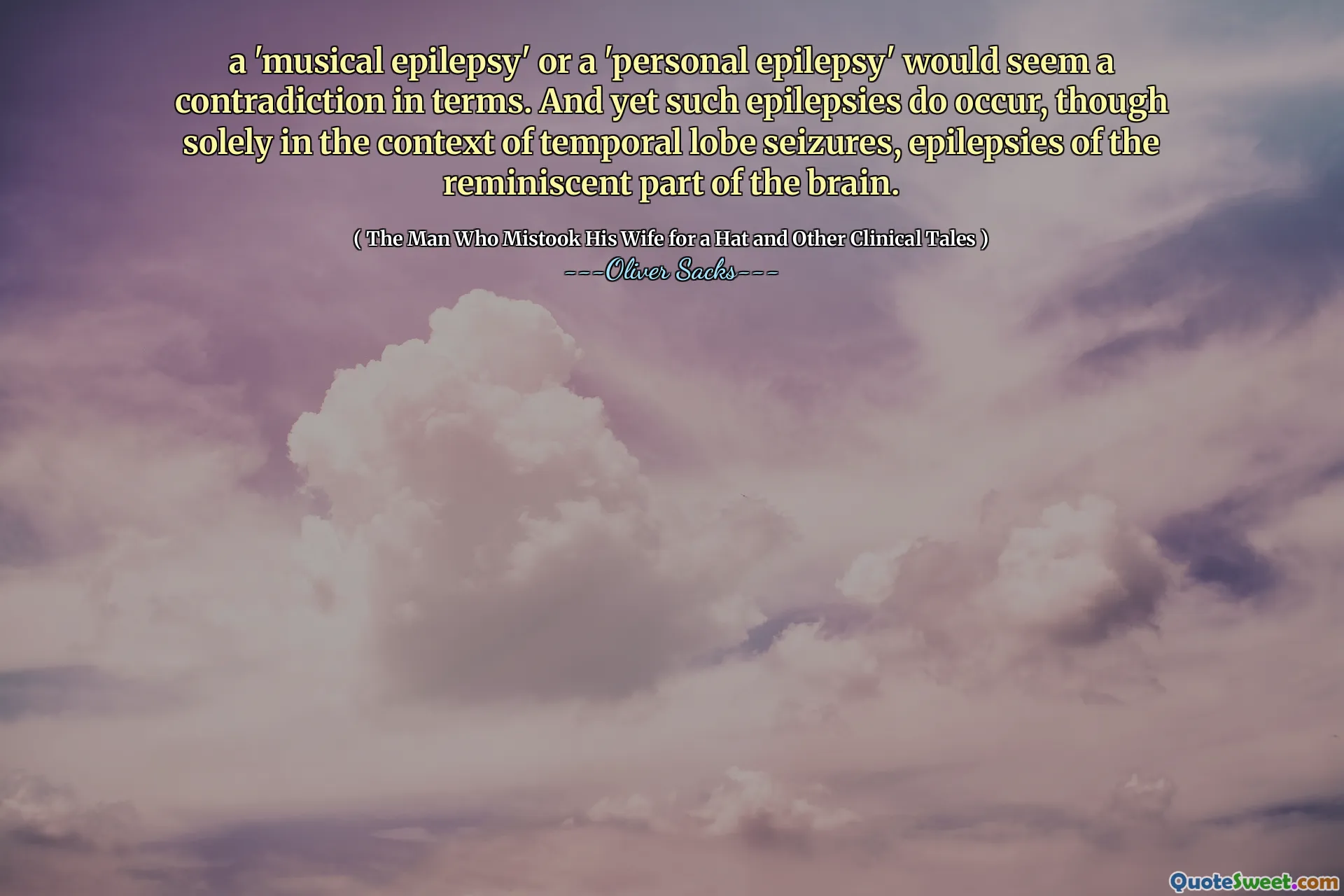
a 'musical epilepsy' or a 'personal epilepsy' would seem a contradiction in terms. And yet such epilepsies do occur, though solely in the context of temporal lobe seizures, epilepsies of the reminiscent part of the brain.
This excerpt, originating from Oliver Sacks' work, delves into the fascinating peculiarities of the human brain, particularly regarding the nature of epilepsy linked to the temporal lobe. The terms "musical epilepsy" and "personal epilepsy" initially strike us as contradictory because epilepsy is conventionally understood as a neurological disorder characterized by seizures and unintentional disruptions of brain activity. However, here Sacks challenges our preconceptions by revealing that these unique forms of epilepsy manifest specifically during temporal lobe seizures. The temporal lobe, associated with memory, emotion, and complex perception, houses the "reminiscent part of the brain," which auditory and personal memories are linked to. This suggests that certain epileptic episodes can trigger or incarnate highly specific, almost artistic or identity-linked experiences, undermining our standard medical frameworks. Sacks' observation opens a broader reflection on the intricate relationship between neurological disorders and personal identity or subjective experience. It highlights how brain conditions can blur the lines between pathology and identity, disease and function. These forms of epilepsy might not only disrupt but also uniquely shape consciousness and perception, posing philosophical questions about what constitutes normal versus altered states of the mind. It is a reminder that neurological phenomena, often seen in rigid scientific lights, can carry deeply individual, sometimes paradoxical dimensions. The quote exemplifies Sacks' broader endeavor to humanize neurological science by immersing us in the lived realities of those who experience such conditions.







